Kleros: blockchain and humans can solve any type of dispute!
Kleros is the solution to the problem that arises when a dispute between two parties occurs. The team understands that, although it is true that technology can solve problems, it is essential to have human intelligence to achieve a beneficial agreement for all.
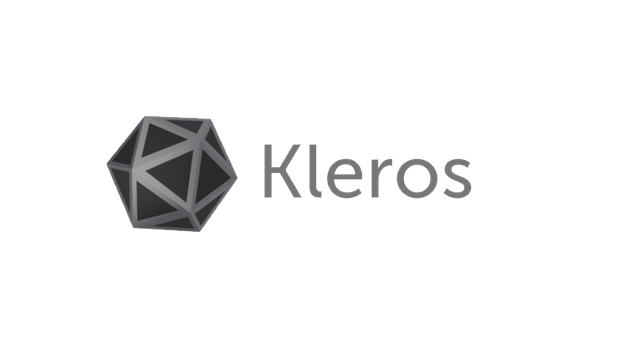
Kleros: Mission Statement
Claims are expensive, slow and annoying processes. With Kleros, both parties are protected against a possible breach of contract.
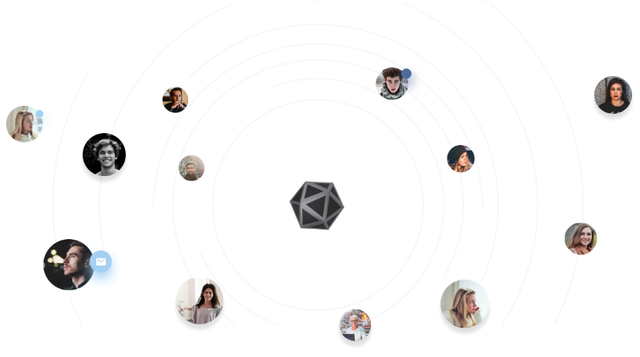
Why Kleros?
Then, some black and white dice with 20 faces and threw them through a tube fixed on one side of the block. The citizens who obtained the white dice were those who could exercise the job of being jurors.
The health of the judicial ecosystem
For a jury to do the job correctly, she/he must be a volunteer, get an incentive for his/her activity and be chosen at random.
Kleros understand this concept and decide to take up this strategy and integrate the blockchain technology, building a decentralized platform on Ethereum that allows resolving disputes anywhere in the world quickly, at lower cost, safely and efficiently.


How does Kleros work?
Kleros has designed a process that must be fulfilled in order to achieve transparency and impartiality to solve a dispute. The stages of this process are:
- Contract: The two parties involved must have a contract in which, by mutual agreement, they state that in case of a dispute, it will be attached to Kleros. Both indicate which sub-court will take the case since it must be specialized in the subject to be treated. For example e-commerce, transport, etc.

Secured evidence: if one of those involved considers that there was a breach of contract, the contract, and the evidence are sent to Kleros, all this under cryptographic security.
Selection of the jury: As I mentioned before, Kleros firmly believes in the system of ancient Athens. Therefore, the selection is based on volunteers and chance. The integrity of the juries is guaranteed by allowing them to reserve their personal identity.
Do you remember that the citizens who wanted to be jurors had to deposit their Pinakion? In Kleros, the token that gives value to the platform is called Pinakion. All users who wish to be part of the group of jurors will be chosen proportionally to the number of tokens they have activated.
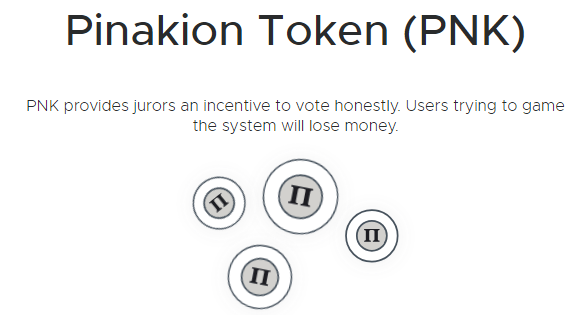
Analysis: At the beginning, the users chosen as juries can make their decision based on simple variables. With the development of the platform, more complex variables can be taken for the analysis of the cases.
Voting: a case will always have more than one jury. Each one will send their verdict accompanied by a justification and will win the average option of the juries.
Appeal: As with any justice process, the appeal option is available. For the next round, the case will have twice as many juries as were in charge of the previous process plus one. The party that is not happy must pay a justice fee. This ensures that appeals are for truly fair reasons.
Redistribution of tokens: once the process is finished, the tokens are distributed among the participating juries. The distribution criterion is quite interesting because those who have reached the final verdict will obtain more tokens. Why? If everyone has access to the same evidence, it is totally logical that they have the same point of view: it is justice. Those who do not have it can be considered negligent, not having examined all the evidence or sent a quick verdict just to collect the incentive.

Each of the jurors receives fees from two sources:
- An equal amount of tokens for all, as a reward for having invested time in the dispute.
- The fund for the redistribution of the tokens considering the consistency of the verdict.
Real uses of Kleros
I want to make an example about how Kleros could saved me from being cheated a few years ago during my experience as a freelance writer.
Two days later, the three jurors send their verdicts and Laura receives an email to notify her that she has won the dispute and will be rewarded with $270 plus $30 for damages. The funds will be released immediately as stipulated in the smart contract.
Daniel receives an email, notifying him that he lost the dispute and can appeal as many times as necessary but he must pay the cost. The jurors receive their fee plus the redistribution of tokens according to their decision and the case is closed.
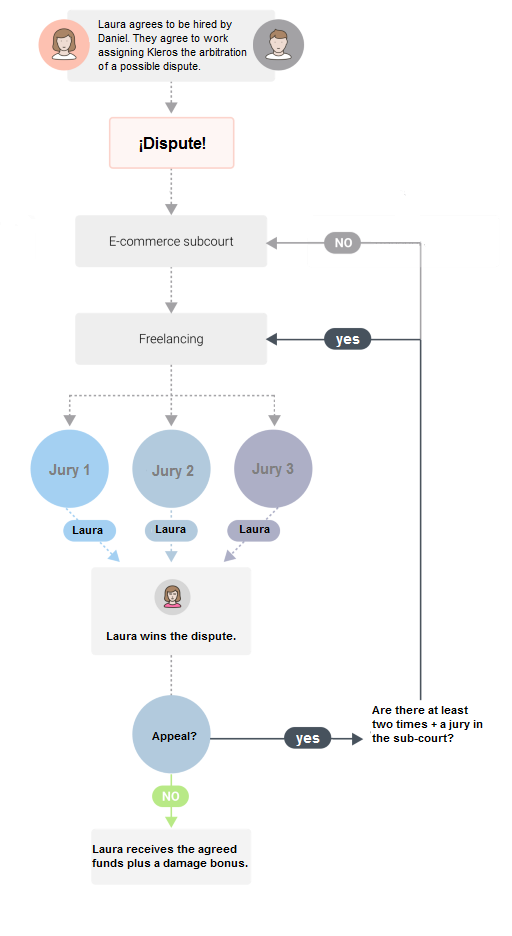
Image modified by me
Internet also needs a figure of justice
Kleros promises to become the platform that gives us security on the internet. No matter where we are, who we relate to or what business we do: everything must have a fair end for the parties involved.
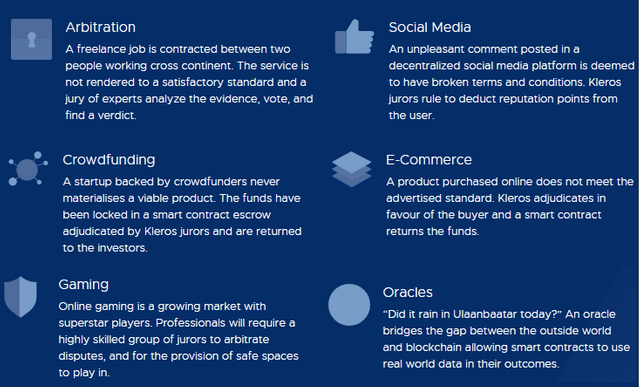
Conclusion:
Disputes can cost a lot of money. In this globalized world, it is difficult for a person to make a claim against someone who lives miles away.
With Kleros, these problems are part of the past! The platform offer us a decentralized solution that allows anyone to feel really safe in the virtual world. The combination of smart contracts with criteria of human beings trained in specific areas to give their final verdict makes Kleros the perfect solution and the only way to guarantee true justice.
For both small and large companies, Kleros is an excellent tool. For big companies, Kleros is an economical, practical and fair way to reconcile with their clients, granting them the assurance that they will always have a just response.
On the other hand, for small entrepreneurs, it is very difficult to overcome the barrier of distrust that a buyer may have to acquire a product from a business that is just beginning or that has no reputation. With Kleros, people can choose between small and large companies without security problems.
Finally, the justice system, as well as the incentive for those who participate as jurors, is the key to success!
A robust and impossible to violate strategy that will undoubtedly open doors to all those Internet users who need to make safe deals.
Please, whatch this video and learn more about Kleros
Join Kleros
- Kleros Website
- Kleros WhitePaper
- Kleros Medium
- Kleros Youtube
- Kleros Telegram
- Kleros Gituhub
- Kleros Forums
Feel free to join this contest here by @originalworks and @kleros
kleros2018
https://twitter.com/ladaural/status/1031992681302552576
klerostwitter
.jpg)

This post has been submitted for the @OriginalWorks Sponsored Writing Contest!
You can also follow @contestbot to be notified of future contests!